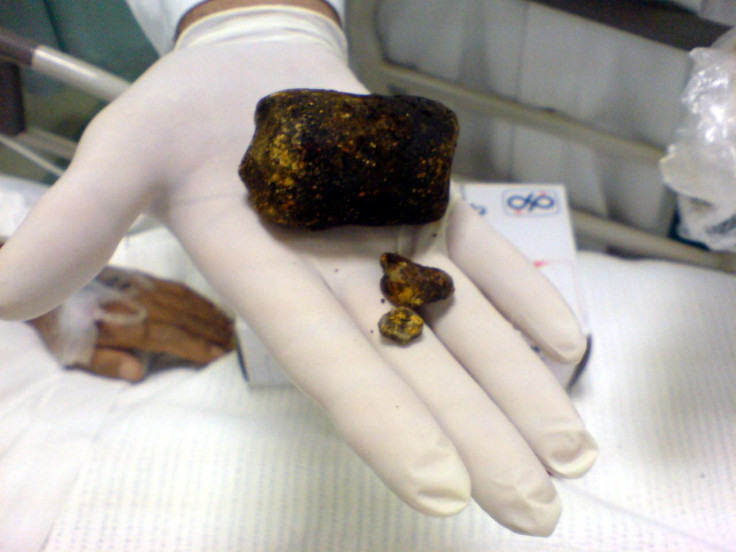Everyday Practices That Will Help Prevent Gallstone Attacks

If you are a woman who is pregnant, in hormone replacement therapy, or on birth control pills, you have a greater likelihood of developing gallstones in your lifetime. According to the National Institute of Diabetes and Digestive and Kidney Diseases (NIDDK), 20 million Americans have gallstones — the majority of those people are unaware of the disease and show no symptoms. Whether you have cholesterol stones — white or yellow in color — or pigment stones — small, dark stones of bilirubin and calcium salts — these stones are all formed in the gallbladder from solid, crystal-like particles. The average American has one gallstone attack in their life that typically lasts one to four hours. However, if the attack is severe or there is a second attack, it may put the person at risk for having future attacks. Three common treatments for gallstones are a "wait and see" approach, nonsurgical removal of the stones, or surgical removal of the gallbladder, says the University of Maryland Medical Center.
While the causes of gallstone formation remain elusive, researchers have indicated that a combination of genetics, body weight, gallbladder movement and diet are determinants of the disease. In a recent study published in Hepatology, researchers examined the connection between body mass index (BMI) and gallstone risk in 77,679 participants in Denmark. Researchers found in a 34-year follow-up that 4,106 participants who were prone to gallstone disease were older, female, less physically fit, and at higher risk of developing the disease than men. "Obesity is a known risk factor for gallstone disease and our study suggests that elevated BMI likely contributes to the development of this disease," said Dr. Tybjærg-Hansen, of Rigshospitalet-Copenhagen University Hospital in Denmark. Gender and age are important determinants in the development of gallstones that cannot be changed, but living a healthy lifestyle — a good diet and weight — is in your control.
Prevent a gallstone attack with these five ways that can be easily implemented in your everyday life.
Eat Your Meals
It is important to not skip meals during the day — doing so may increase the risk of gallstones. Skipping a meal will cause bile to build up in your gallbladder until the next time you feed your body. Fasting will cause bile juices to remain in the gallbladder, which can harden and form gallstones. The consumption of small meals during the day can minimize the risk of gallstones because bile is constantly being removed by the gallbladder, says Cedars-Sinai.
Maintain A Healthy Weight
Excessive weight gain has been directly linked to a higher risk of gallstones. Eliminate eating an abundance of high-fat foods that can trigger narrowing and squeezing of the gall bladder. A well-balanced diet that is rich in fiber, fresh fruits and vegetables, lean meats, and low-fat diary products can serve as preventative foods for the disease. "Diet primarily contributes to gallbladder disease by contributing to obesity," Field Willingham, MD, assistant professor of medicine in the division of digestive disease at Emory University School of Medicine in Atlanta, told Everyday Health.com.
Exercise 5 Day A Week
Exercising for as little as 45 minutes a day can reduce your risk of developing gallstones. Severe biliary episodes that lead to surgery are said to occur at the same rate in males and females, said researchers in a study published in the journal of Annals of Internal Medicine. Physical activity was evaluated to see if it decreases the risk for symptomatic gallstone disease in men. 45,813 men aged 40 to 75 were followed for eight years and given questionnaires every two years. The questions asked included amount of physical activity, incidence of gallstone disease, age, body weight, etcetera. The results of the study showed that 828 men reported having newly symptomatic gallstones — 34 percent of these cases could have been prevented by increasing exercise. Endurance exercises for 30 minutes, five times a week can, be used as a preventative measure for the formation of gallstones.
Moderate Intake of Caffeinated Beverages
One cup of coffee a day can decrease the risk of gallstone disease. In a study conducted at Johns Hopkins University School of Medicine in Baltimore, Maryland, researchers tested the hypothesis that caffeine would stop in vivo gallbladder absorption and prevent formation of cholesterol gallstones. Sixteen adult male prairie dogs were fed a control nonlithogenic diet and 16 were fed a diet that contained 1.2 percent cholesterol — half of the prairie dogs in each group received caffeine in their drinking water. The results of the study showed that caffeine prevented the formation of cholesterol gallstones in the experiment group.
Published by Medicaldaily.com



























